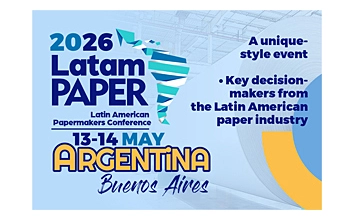The Alex Fraser Research Forest (AFRF), part of the University of British Columbia’s (UBC) Faculty of Forestry, has partnered with FPInnovations to launch an innovative Community Bioenergy Systems Training Program.
The initiative aims to help remote and Indigenous communities transition from diesel-based energy to sustainable, wood-based biomass power.
Hands-On Learning for Sustainable Energy
Starting in early 2025, participants will receive training at AFRF’s biomass Combined Heat and Power (CHP) plant in Williams Lake, BC. The program will cover operational techniques, woody debris supply chain management, and the development of bioenergy systems. The ultimate goal is for attendees to return to their communities equipped with the skills to modernize local energy infrastructure.
“We are thrilled to share our knowledge and experiences with others who can benefit from this system,” says Stephanie Ewen, AFRF’s manager. “We’ve seen the advantages of using low-value biomass locally and want to help other remote communities access these benefits.”
Bridging a Gap in Energy Resources
Remote communities, often disconnected from provincial or territorial energy grids, face significant energy challenges. While many produce high-value lumber, by-products like treetops and limbs are often underutilized. The training program focuses on transforming these materials into biomass energy, providing an eco-friendly alternative to diesel generators.
Stéphane Renou, president and CEO of FPInnovations, highlights the broader benefits: “This project creates energy independence, fosters economic development, and generates local jobs. We’re proud to collaborate with Indigenous communities and other stakeholders to make this vision a reality.”
Program Details and Benefits
The training includes:
-
Workshops in January and March 2025 at AFRF in Williams Lake, BC.
-
Practical sessions with the CHP plant and specialized equipment, such as wood chippers.
-
Insights into forestry processes, wood supply chains, and bioenergy principles.
To make the program accessible, tuition is waived for Indigenous participants, and accommodations, meals, and travel subsidies are provided. Interested individuals can apply via AFRF’s website or contact
Community-Driven Solutions
Two pilot projects exemplify the initiative’s potential:
-
In Mistassini, Quebec, participants aim to address seasonal food insecurity with extended food drives from January to June.
-
In Côte-Nord, Quebec, employees plan to make gardening more accessible through raised garden beds tailored to local seniors, youth centers, and newcomers.
A Collaborative Approach
Supported by Natural Resources Canada and the Province of British Columbia, the program unites diverse stakeholders, including Indigenous communities, industry experts, and government bodies.
“We are building the foundation for cleaner energy solutions and greater energy resilience,” Ewen adds. “It’s about empowering communities to take charge of their energy future.”
About the Partners
Alex Fraser Research Forest: Spanning nearly 10,000 hectares in British Columbia’s Cariboo region, AFRF serves as a hub for sustainable forest management research and education.
FPInnovations: A not-for-profit organization dedicated to advancing the competitiveness of Canada’s forest sector through cutting-edge research and technology transfer.
By fostering collaboration and hands-on expertise, the Community Bioenergy Systems Training Program promises to drive meaningful change in remote communities while advancing sustainability goals across Canada.

















